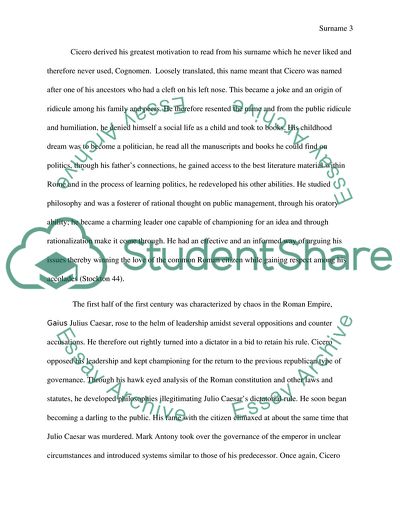Cite this document
(Cicero and Liberty in Modern Era Article Example | Topics and Well Written Essays - 2000 words - 1, n.d.)
Cicero and Liberty in Modern Era Article Example | Topics and Well Written Essays - 2000 words - 1. https://studentshare.org/history/1789842-cicero-and-liberty-in-modern-era
Cicero and Liberty in Modern Era Article Example | Topics and Well Written Essays - 2000 words - 1. https://studentshare.org/history/1789842-cicero-and-liberty-in-modern-era
(Cicero and Liberty in Modern Era Article Example | Topics and Well Written Essays - 2000 Words - 1)
Cicero and Liberty in Modern Era Article Example | Topics and Well Written Essays - 2000 Words - 1. https://studentshare.org/history/1789842-cicero-and-liberty-in-modern-era.
Cicero and Liberty in Modern Era Article Example | Topics and Well Written Essays - 2000 Words - 1. https://studentshare.org/history/1789842-cicero-and-liberty-in-modern-era.
“Cicero and Liberty in Modern Era Article Example | Topics and Well Written Essays - 2000 Words - 1”. https://studentshare.org/history/1789842-cicero-and-liberty-in-modern-era.


